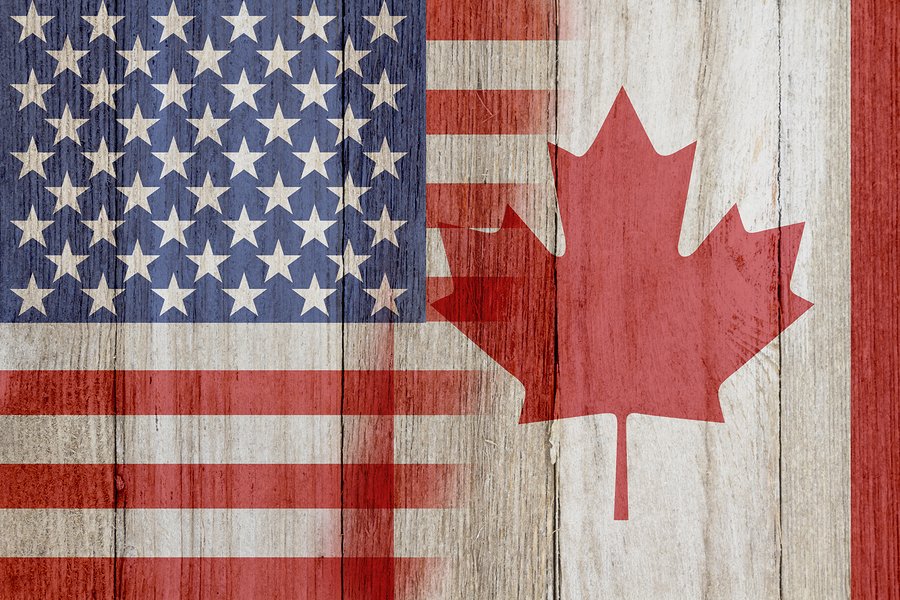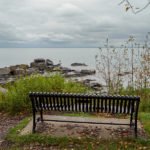Hearing reports from conservation officers that there were Americans at their cabins on the Canadian side of border lakes, as well as anglers asking if they can cross into Canada (using Remote Border Crossing permits) to fish in border lakes, I tracked down current information. The most succinct response came from Ed Fowler, patrol agent in charge at the U.S. Border Patrol station in Grand Marais.
“Nonessential cross-border traffic is prohibited,” Fowler said.
In case you need to be hit over the head with a 2×4, fishing is a nonessential activity.
Fowler urged me to contact U.S. and Canada customs offices for more thorough information. Both offices responded promptly with fact sheets, which are current as of today, March 26. Much thanks to public information officer Jason Givens with U.S. Customs and Border Protection and Rebecca Purdy, senior spokesperson of the Canada Border Services Agency.
***
U.S.-Canada Border Temporary Restriction
As of March 21, there is a temporary 30-day restriction on all non-essential travel at the Canada-U.S. border. These temporary measures are for an initial period of 30 days, which may be renewed. All travel of an optional or discretionary nature, such as tourism and recreation, is covered by these measures. Travel by healthy people who have to cross the border to go to work or for other essential purposes, such as medical care, will continue.
Crossing from Canada into the U.S., per U.S. Customs
“Essential travel,” includes, but is not limited to—
- U.S. citizens and lawful permanent residents returning to the United States;
- Individuals traveling for medical purposes (e.g., to receive medical treatment in the United States);
- Individuals traveling to attend educational institutions;
- Individuals traveling to work in the United States (e.g., individuals working in the farming or agriculture industry who must travel between the United States and Mexico in furtherance of such work);
- Individuals traveling for emergency response and public health purposes (e.g., government officials or emergency responders entering the United States to support Federal, state, local, tribal, or territorial government efforts to respond to COVID-19 or other emergencies);
- Individuals engaged in lawful cross-border trade (e.g., truck drivers supporting the movement of cargo between the United States and Mexico);
- Individuals engaged in official government travel or diplomatic travel;
- Members of the U.S. Armed Forces, and the spouses and children of members of the U.S. Armed Forces, returning to the United States; and
- Individuals engaged in military-related travel or operations.
The following travel does not fall within the definition of “essential travel” for purposes of this Notification—
- Individuals traveling for tourism purposes (e.g., sightseeing, recreation, gambling, or attending cultural events).
Crossing from the U.S. into Canada, per Canada Border Services Agency (Land/Ferry/Rail/Marine, including private boats)
Essential Travel Only
- On March 21, there is a temporary 30-day restriction on all non-essential travel at the Canada-U.S. border.
- All travel of an optional or discretionary nature, such as tourism and recreation, is covered by these measures.
- Travel by healthy people who have to cross the border to go to work or for other essential purposes, such as medical care, will continue.
Processing non-Canadian and Exempt Travelers
- U.S. travellers and foreign nationals who are processed by a border services officer (BSO) at a land border will be asked about the purpose of their visit determine whether their travel is essential or not and whether they are feeling ill or unwell.
- The BSO may ask additional questions to make their determination.
- Regardless of how they seek to enter Canada, all travelers arriving in Canada, including workers such as truck drivers, flight crews and healthcare workers, are subject to questioning about their health.
- The following questions are now being asked by all border services officers at the primary inspection line at all air, land, ferry and rail ports of entry:
- “Do you currently have a cough, difficulty breathing, or feel you have a fever?”
- “I acknowledge that I am/we are being asked to self-isolate for 14 days to prevent the potential spread of COVID-19.”
- CBSA Officers not only query travelers on the state of their health, they are trained to observe visible signs of illness and will refer any traveler who they suspect of being ill, regardless of how the traveler responded to the health screening question.
- If the traveler is displaying symptoms of illness, they will no be permitted to enter Canada.
Processing Canadian Travelers
- Canadian citizens and permanent residents will enter Canada by right.
- Canadian citizens and permanent residents are subject to questioning about their health.
- The following questions are now being asked by all border services officers at the primary inspection line at all air, land, ferry and rail ports of entry:
- “Do you currently have a cough, difficulty breathing, or feel you have a fever?”
- “I acknowledge that I am/we are being asked to self-isolate for 14 days to prevent the potential spread of COVID-19.”
- CBSA Officers not only query travelers on the state of their health, they are trained to observe visible signs of illness and will refer any traveler who they suspect of being ill, regardless of how the traveler responded to the health screening question.
- Travelers presenting symptoms consistent with COVID-19 will be referred to a PHAC staff member for further assessment.
- These travelers are provided with a kit that includes a mask and instructions.
- They will also be provided with a Public Health Agency of Canada pamphlet containing the latest health advice that advises travelers to self-isolate for 14 days.
Signage
- Additional signage from PHAC is being posted throughout the arrivals area to encourage travelers to self-isolate, monitor their health and contact health authorities if they are feeling ill or develop symptoms.






